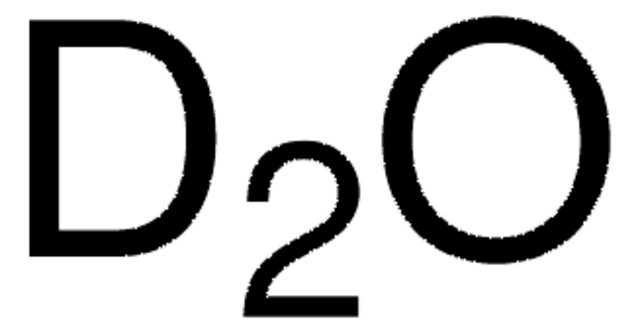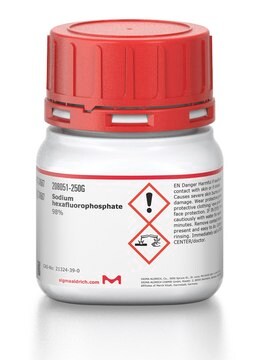483745
Sodium
cubes, contains mineral oil, 99.9% trace metals basis
Synonym(s):
Sodium metal
Sign Into View Organizational & Contract Pricing
All Photos(3)
About This Item
Empirical Formula (Hill Notation):
Na
CAS Number:
Molecular Weight:
22.99
MDL number:
UNSPSC Code:
12352300
PubChem Substance ID:
NACRES:
NA.22
Recommended Products
vapor pressure
1 mmHg ( 440 °C)
Quality Level
Assay
99.9% trace metals basis
form
cubes
contains
mineral oil
reaction suitability
reagent type: reductant
resistivity
4.69 μΩ-cm, 20°C
bp
883 °C (lit.)
mp
97.8 °C (lit.)
SMILES string
[Na]
InChI
1S/Na
InChI key
KEAYESYHFKHZAL-UHFFFAOYSA-N
Looking for similar products? Visit Product Comparison Guide
Related Categories
General description
Sodium serves as a reductant for the difunctionalization of alkenes and alkynes. It is also used in Bouveault-Blanc reduction.
Application
Sodium metal can be used as a reducing agent in reactions such as Birch reduction.
Signal Word
Danger
Hazard Statements
Precautionary Statements
Hazard Classifications
Skin Corr. 1B - Water-react 1
Supplementary Hazards
Storage Class Code
4.3 - Hazardous materials which set free flammable gases upon contact with water
WGK
WGK 2
Flash Point(F)
179.6 °F
Flash Point(C)
82 °C
Choose from one of the most recent versions:
Already Own This Product?
Find documentation for the products that you have recently purchased in the Document Library.
Customers Also Viewed
The Use of Sodium Metal in the Birch Reduction of Aromatic Compounds1.
Dryden Jr HL, et al.
The Journal of Organic Chemistry, 26(9), 3237-3245 (1961)
Recent advances in the use of sodium dispersion for organic synthesis
De PB
Synthesis, 53, 3180-3192 (2021)
Nicole Li et al.
American heart journal, 166(5), 815-822 (2013-11-02)
Cardiovascular diseases are the leading cause of death and disability in China. High blood pressure caused by excess intake of dietary sodium is widespread and an effective sodium reduction program has potential to improve cardiovascular health. This study is a
Supriya S Jalimarada et al.
Investigative ophthalmology & visual science, 54(6), 4330-4340 (2013-06-08)
Mutations in SLC4A11, a member of the SLC4 superfamily of bicarbonate transporters, give rise to corneal endothelial cell dystrophies. SLC4A11 is a putative Na⁺ borate and Na⁺:OH⁻ transporter. Therefore we ask whether SLC4A11 in corneal endothelium transports borate (B[OH]₄⁻), bicarbonate
Julijana Vuchkova et al.
American journal of physiology. Renal physiology, 307(5), F525-F532 (2014-07-06)
Albuminuria in nephrotic states is thought to arise from the formation of large pores in the glomerular capillary wall as large hydrodynamic probes, like Ficoll, have increased fractional clearance. In the present study, we tested for large pore formation in
Our team of scientists has experience in all areas of research including Life Science, Material Science, Chemical Synthesis, Chromatography, Analytical and many others.
Contact Technical Service









